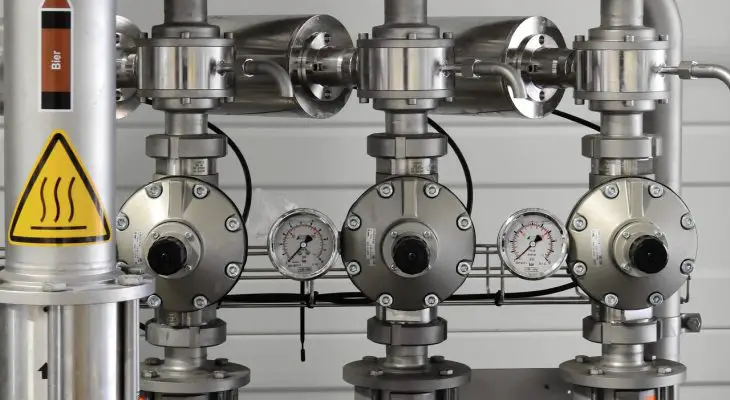It’s not like homeowners like calling up plumbers to address their plumbing issues. Not only can plumbing issues become expensive, but they can also disrupt your life. You can prevent major plumbing disasters by taking a proactive approach that entails adopting the best practices. So, let’s look at 8 helpful plumbing tips you can adopt:
Avoid putting the following items down the drain
The biggest mistake homeowners make with their kitchen drain system is putting down the wrong things. For instance, it may seem quite harmless to pour grease and oil down the kitchen sink. But where does the fat actually go? Because the fat is quite sticky, it agglomerates and begins building up when it encounters some gunk. The biggest ever fatberg was found in Liverpool’s sewer that was up to 84-meter long. Now, even if you have a garbage disposal unit, you should avoid putting the following items down the drain:
- Eggshell;
- Coffee grounds;
- Uncooked rice
- Extra dough
- Butter or margarine
- Pasta
Use a basket strainer in your kitchen
If you don’t have one installed, you absolutely need a basket strainer in your kitchen sink. The strainer will prevent many of the things we have mentioned from entering the drain. Even if you have a garbage disposal unit, it is essential to have a strainer as it can keep knives, forks, plastic items, and more from ending up in the garbage disposal’s impellers.
Avoid flushing disposable wipes
Toilet disasters are quite nasty. For instance, a sewage backup may cause dirty water to overflow from the toilet bowl. The greywater may have dangerous bacteria and may ruin your floors. Cleaning up will be a big chore. The repair costs may also add up because the plumber may need to perform a camera line inspection to determine the real cost of the blockage. They will also recommend hydro-jetting to clear the lines completely. So, what can you do to prevent toilet issues such as clogging or backups? The most important thing is to keep non-flushable wastes away from the sewer line.
Schedule Yearly Water Heater Inspection
Water heater calls are among the most common emergency requests that 24-hour plumbers receive at teamemergencyplumber.com. A water heater that’s not working correctly may also cause other serious problems. For instance, if there is a leak in the water tank, it may contribute to structural damage depending on its location. In older homes, you will find that the water heater is installed in the attic or a closet next to the laundry room. Water heaters also experience sediment buildup and may need a yearly cleanup.
So, consider scheduling a yearly water heater inspection from a qualified plumber. The plumber will also check the condition of the anode rod, heating elements, proper frame, and gas venting. Well-maintained water heaters may even last for more than 10 years.
Avoid toxic drain cleaners with drain clogs
Whenever there’s a blockage issue with the drain, the last thing you should do is to pour any commercial drain cleaner you can get your hands on. The problem with many drain cleaners is that they may be too aggressive and result in a lot of heat buildup inside the pipes. You can consider trying home-based remedies such as vinegar with baking soda. Alternatively, you can try mechanical solutions such as a plunger or a DIY plumbing snake.
Have some useful plumbing tools laying around
Some basic plumbing problems may not necessitate calling a plumber. For instance, you may only need to tighten a loose plumbing fitting to fix a leak or unmount the showerhead to clean it to restore normal water flow. That’s why you need to have some useful plumbing tools lying around. Some of the recommended tools that you can consider getting include:
- Plungers
- Hand augers/plumbing snake
- Pipe wrench
- Adjustable wrench
- Pliers
- Hacksaw
- Strap wrench
- Hacksaw
- Thread tapes
- Caulk and caulk gun
- Plumbers putty
Make Sure Your Shut-off Valves are Working
You can find the shut-off valves under cabinets, for instance, your bathroom and sink cabinets. The toilet also has a shutoff valve that you can use to stop water from filling the toilet tank. It’s important to have shut-off valves for every appliance. What’s more, you should check to make sure that they are working from time to time. Be sure also to check the location of the main water valve. Turning it off allows you to halt all water flow to the entire house, preventing water damage in case of internal water pipe bursts.
Check out for leaks
Silent leaks may go undetected for months and even years. In the meantime, you’ll be experiencing high water bills. If the water is dripping on structural components such as piers, it may contribute to rotting wood or the growth of mold and mildew. You can start checking for silent leaks from the toilet. You can also inspect the slab for any signs of wetness. If you have a swimming pool in your compound, you should check out ways to detect silent leaks. There are many tests you can use to find leaks, such as turning off the tap and checking if the water meter is still running.





